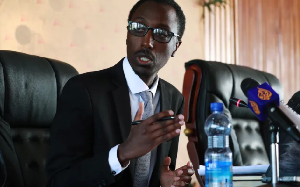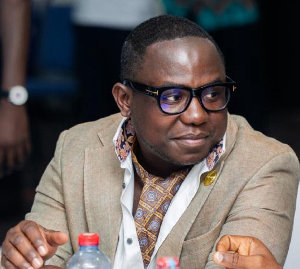Accra, Jan. 14, GNA - Ghana has resolved to explore innovative approaches in addition to current strategies to increase the detection rate of tuberculosis (TB) cases in the country, Health Minister Dr Benjamin Kumbour said on Thursday.
He said Ghana would in addition find ways of establishing the true burden of TB to correspond with increment of cases reported annually. Addressing participants at an international seminar on "Accelerating TB case Detection in Ghana through Innovative Diagnostic Infrastructure and Addressing X'ray Equipment Gaps" in Accra, Dr Kumbour in an address read for him by Dr Elias Sory, Director-General, Ghana Health Service, said the major challenge to TB control was low case detection globally with Ghana having about 70 per cent of expected TB cases undetected.
He said the Ministry remained absolute in partnering the World Health Organisation (WHO) and other NGOs like the Dutch based MANGO CONSULT under their "Check TB" project to accelerate TB case detection by building health system capacity and through the introduction of innovative diagnostic infrastructure. "Today, MANGO CONSULT and the Ministry of Health have a Memorandum of Understanding to develop and implement digital X'ray technology in the country."
"The benefits and advantages are numerous and I am sure the seminar will have detail discussions on the subjects-accuracy, remote diagnosis, computer aided diagnosis and cost savings are some of the benefits derived by using digital images," Dr. Kumbour said. He said the Ministry through the project intended to obtain two mobile fully equipped digital X'ray vans that would be used to improve access to TB diagnosis in deprived areas in Brong-Ahafo and Northern regions.
"The world is watching and waiting to see that high technology digital X'ray is deployed and used in high risk communities such as the slums for the benefit of the people and to help contain tuberculosis," he added.
Dr Sory said traditional healers should not be left out in helping to detect and treating the disease since majority of ailing Ghanaians, including those with TB cases, believe and access their facilities for health care.
Dr Frank Bonsu, Programme Manager, National Tuberculosis Programme (NTP), said the bad outcome of TB treatment cases had reduced drastically since 1996 and those which were detected were being treated well, except that most of the cases were not being detected. He stressed the need to increase incentive packages for health workers who were involved in managing TB cases in the country to motivate them to stay on and work since they were faced with lot of stigmatization even among their colleagues in other health fields. "Stigma is a real problem in detecting and treating TB in Ghana, particularly among patients and the communities" he said, adding that, inadequate access to TB diagnostic and treatment services were other contributing factors in the fight against the disease.
Health News of Thursday, 14 January 2010
Source: GNA












